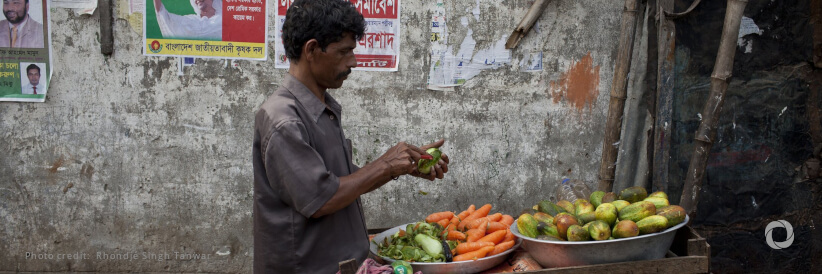The U.S. Trade and Development Agency (USTDA) announced it has awarded a feasibility study grant to Bangladesh-prepared foods and cold chain services company Bonton Foods Limited (Bonton Foods) to support the deployment of a temperature-controlled logistics network of cold storage refrigeration warehouses in Bangladesh.
The study’s goal is to lower costs and reduce losses of dairy, meat, and other food products, resulting in improved food security for people across the country. Bonton Foods selected Minnesota-based Land O’Lakes Venture37 to conduct the study.
“Facilitating private sector investment is vital to Bangladesh’s food security goals. Our partnership with Bonton Foods will help mobilize capital and deploy innovative solutions that address the needs of Bangladesh’s people,” said Enoh T. Ebong, USTDA’s Director. “We look forward to demonstrating the positive role that U.S. technology can play in unlocking greater access to fresh foods.”
While Bangladesh has 2.7 million metric tons of cold storage refrigeration capacity across over 300 sites, the country’s current cold chain industry cannot meet demand, particularly in rural areas. As a result, animal proteins and produce are handled primarily via wet markets with little to no mechanical refrigeration support, which can lead to food spoilage and loss.
The USTDA-funded study will address these challenges by facilitating the construction of an integrated network of third-party logistics cold storage facilities across Bangladesh.
Shamim Ahamed, Managing Director of Bonton Foods, said: “The country’s large population—20 million people in greater Dhaka alone—a growing upper and middle-class, and changing consumer patterns signal a bright future for the cold chain industry, and we are keen to leverage our position in the market by expanding third-party logistics services to small and medium-sized agribusinesses as well as international food importers and exporters.”
“The lack of appropriate temperature-controlled logistics in Bangladesh results in post-harvest losses affects food safety, and limits trade in agricultural and consumer products,” said Chargé d’Affaires of U.S. Embassy Dhaka, Helen LaFave. “Cold chain infrastructure would enable Bangladeshi agricultural producers to diversify export opportunities by ensuring the safety and quality of their agricultural products. This feasibility study will identify opportunities for increased U.S. investment in the cold chain, which would create a stable logistics network for refrigerated and frozen U.S. products that meet the consumer demands of the rapidly growing Bangladesh middle class.”

